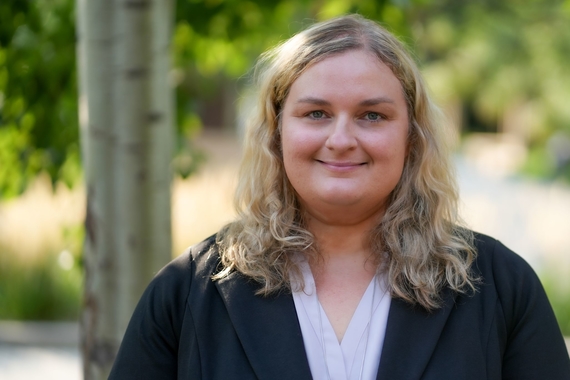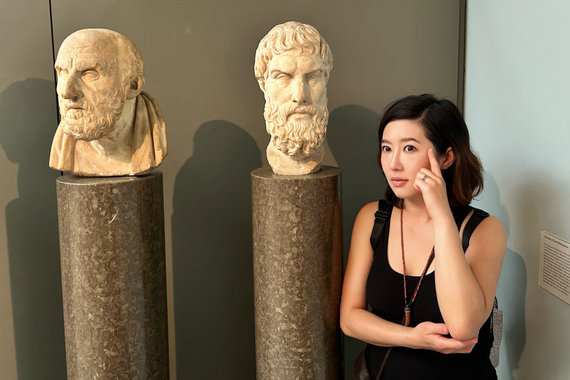Central States Conference: Featuring Many UMN Presentations
March 12–14, 2020
Minneapolis, MN
Register online
Registration is still open for the 2020 Central States Conference on the Teaching of Foreign Languages, and this year the conference is conveniently located in Minneapolis! It will feature strong representation from the University of Minnesota (UMN), including instructors and other professionals from the following departments: Asian and Middle Eastern Studies, CARLA, French and Italian, German, Nordic, Slavic and Dutch, Language Center, LATIS, and Spanish and Portuguese.
The full conference program is available, and here are the sessions featuring UMN presenters:
Engaging Beginning Chinese Learners with Multimedia Grammar Lessons
This presentation describes the process for developing and incorporating interactive multimedia lessons in a flipped lower-level Chinese course. We report on student engagement and perceptions developed from interactions with the lessons. We conclude by discussing successes and challenges, and offering guidelines for curriculum integration of lessons and for selecting technologies to manage delivery of content and integration of feedback.
Presenters: Hai Liu, Wei Hsuan Lo (Asian and Middle Eastern Studies) & Adolfo Carrillo Cabello, Dan Soneson (Language Center)
Why Does Language Learning Before College Matter?
Presenters discuss results of a three-year study involving ACTFL proficiency testing of over 2000 students in seven language programs pointing to the strong influence of high school and pre-university experience on language proficiency at all stages of the university curriculum and showing how strongly postsecondary language programs depend on students entering college with a solid background in a second language.
Presenters: Dan Soneson, Carter Griffith (Language Center) & Arthur Strawbridge (Spanish and Portuguese)
Incorporating Gender Inclusive Language into the French Language Classroom
This session explores strategies and resources for incorporating gender inclusive language into K-16 French classrooms. Investigating alternatives to the rule of masculine grammatical precedence over feminine, discussing gender nonbinary pronouns, and exploring new inclusive writing conventions engages students in the polarizing debate on inclusive language in contemporary France and creates an inclusive classroom environment mindful of students’ diverse gender identities.
Presenters: Chloe Mais Hagen (French and Italian)
Solving a Host of Problems: Planning a Multi-Site Language and Technology Conference
Shrinking travel budgets are increasingly limiting conference attendance to those within driving distance of the host site. To address this problem, the 2018 MWALLT conference adopted a hybrid model that linked three host sites through teleconference. Attendees could participate face-to-face at any of the host sites or access all three live feeds online. We present successes and lessons learned.
Presenters: Marlene Johnshoy (CARLA-University of Minnesota), Jon Perkins (University of Kansas), Dan Soneson (Language Center-University of Minnesota), Shannon Spasova (Michigan State University)
Connecting Roman and Non-Roman Languages to Proficiency Ratings
Gatekeeping strategies such as placement tests account for prior exposure to the target language in order to place learners in level-appropriate courses. Such strategies, however, disregard intrinsic differences between Roman and Non-Roman languages. This study reports speaking and reading proficiency ratings of 479 learners in relation to language groups, and identifies factors affecting ratings such as contexts of engagement.
Presenters: Hossam Elsherbiny (Asian and Middle Eastern Studies) and Adolfo Carrillo Cabello (Language Center)
Classroom Ready to be Career Ready
Considering career readiness initiatives as cultural products can energize the Intermediate theme of jobs/careers. However, learners’ experiences vary, so becoming classroom ready (via homework) is necessary to level the playing field and enrich classroom discourse. This presentation details a homework template to support a multiliteracies approach, focusing on the specific case of integrating career readiness texts in the languages.
Presenter: Sara Mack (Spanish and Portuguese)
Do Context and Frequency of Speaking Engagement Affect Proficiency?
This study analyzed speaking proficiency test results of 479 lower-level foreign language students of Arabic, French, German, Korean, Portuguese, Russian, and Spanish. The analysis considered students’ reported contexts and frequencies of engagement for speaking practices. Results show correlations between frequency, types of contexts of engagement and levels of proficiency attained. Implications on speaking practices and curriculum design will be discussed.
Presenters: Adolfo Carrillo Cabello (Language Center), Frances Matos-Schultz (Spanish and Portuguese), and Alicia Hofelich Mohr (LATIS)
Moving to Multiliteracies: Tools to Support Teacher Understanding
Scholarship foregrounds multiliteracies pedagogy (ML) as a viable approach for developing students’ foreign language literacy. We present free tools for teachers that explain ML concepts, distinguish ML from other approaches, and scaffold ML lesson planning.
Presenters: Mandy Menke (Spanish and Portuguese) and Kate Paesani (CARLA)
L’actualité française pour développer les compétences communicatives et interculturelles
Nous passerons en revue les grands thèmes d’actualité française récente en matière d’éducation, société, politique et environnement avec une attention particulière à la crise des gilets jaunes et le Grand Débat. Différents textes authentiques (écrits, photos, vidéos) seront partagés avec présentation d’activités pédagogiques utilisées en cours intermédiaire et avancé pour développer les compétences communicatives et interculturelles des apprenants.
Presenter: Patricia Mougel (French and Italian)
Working Together to Enhance Language Development in Content Courses
As university-level foreign language students reach upper-division literature-focused courses, their linguistic skills tend to plateau, especially for speaking. This presentation reports on an initiative that integrated systematic and explicit attention to speaking development in third-year French, German, and Spanish upper-level courses. We discuss examples of instructional activities that merge language and literary-cultural learning and promote advanced-level speaking practice.
Presenters: Adolfo Carrillo Cabello (Language Center), Ray Balstad (French and Italian), Emily Groepper (German, Nordic, Slavic and Dutch), and Alex Korte (Spanish and Portuguese)


